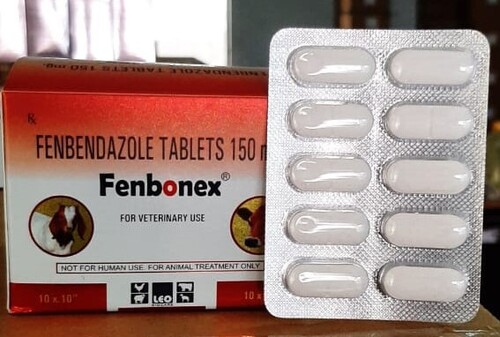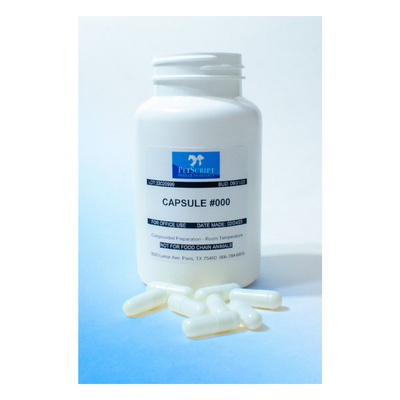fenbendazole 444: A Full Guide in Animal Care
Exploring the Devices Behind Fenbendazole and Its Effect on Pet Health And Wellness
Fenbendazole is a widely used anthelmintic known for its efficiency versus different bloodsuckers. Its key mechanism involves the inhibition of microtubule formation, which interferes with important procedures in these pathogens. Past its antiparasitic buildings, fenbendazole likewise shows up to enhance immune feedbacks and possesses anti-inflammatory advantages. Understanding these diverse results could disclose brand-new applications for pet health. However, inquiries continue to be concerning its complete capacity and safety and security account.
The Pharmacokinetics of Fenbendazole
The pharmacokinetics of fenbendazole, an extensively made use of anthelmintic in vet medication, involves the study of its absorption, distribution, metabolism, and excretion within pet systems. After management, fenbendazole is swiftly soaked up from the stomach system, with peak plasma focus happening within hours. Its circulation is affected by variables such as cells binding and lipid solubility, enabling it to pass through different cells effectively. The medicine undertakes extensive metabolic process mostly in the liver, where it is converted into energetic and non-active metabolites. These metabolites contribute in the medication's total efficacy and safety account. Discharging occurs largely with feces, with a smaller proportion removed through urine. The half-life of fenbendazole differs amongst types, which affects application programs. Recognizing these pharmacokinetic homes is important for optimizing its healing usage and making sure efficient bloodsucker control in veterinary practices.
Devices of Activity Against Bloodsuckers
Fenbendazole applies its antiparasitic impacts mainly through the restraint of microtubule development in parasites. This disruption influences their structural stability and mobile functions, causing impaired basal metabolism. As a result, the medicine successfully compromises the survival and reproduction of numerous parasitical organisms.
Restraint of Microtubule Development
Inhibition of microtubule development represents an important mechanism via which specific anthelmintic agents, consisting of fenbendazole, exert their results on bloodsuckers. Fenbendazole binds to tubulin, a protein that develops microtubules, interfering with the polymerization procedure required for microtubule setting up. This interruption harms vital cellular functions, consisting of mitosis, intracellular transport, and architectural integrity. As microtubules play a critical function in keeping the shape and feature of parasitical cells, their inhibition brings about cell cycle arrest and ultimate death of the parasite. This device is particularly efficient versus nematodes, as their reliance on microtubules for flexibility and nutrient absorption makes them susceptible to fenbendazole. The restraint of microtubule formation is a vital facet of fenbendazole's therapeutic efficiency in veterinary medication.
Disturbance of Basal Metabolism
Disrupting energy metabolic rate is an additional essential system whereby fenbendazole targets parasitical microorganisms. This anthelmintic changes the power manufacturing paths within parasites, mainly impacting their ability to produce adenosine triphosphate (ATP) By inhibiting sugar uptake and interfering with mitochondrial function, fenbendazole restrictions the power sources necessary for the survival and reproduction of these organisms. Therefore, parasites become increasingly susceptible to environmental stress and anxieties and immune feedbacks. The interference in energy metabolic rate not only affects the parasites straight yet likewise lowers their ability to take in nutrients, even more impairing their growth - fenbendazole capsules. Overall, the disturbance of power metabolic process represents a fundamental facet of fenbendazole's efficacy versus numerous parasitic infections, adding greatly to enhanced animal health results
Potential Adverse Effects and Safety Profile
The possible negative effects and safety and security profile of fenbendazole warrant mindful consideration, particularly in vet applications. While typically considered as secure, some pets may experience damaging responses, consisting of intestinal disturbances such as vomiting and looseness of the bowels. Furthermore, neurological symptoms, although uncommon, have been reported in sensitive people, highlighting the requirement for surveillance during treatment.

Fenbendazole's safety and security in various varieties, including pet dogs and pet cats, has been recorded, but dosage and period of therapy should be meticulously taken care of to reduce threats. Pregnant or lactating pets might also call for special interest, as the impacts on establishing unborn children or nursing spawn are not totally recognized.
Normal vet assessments can assist minimize potential side impacts and assure the medicine is administered appropriately. Consequently, while fenbendazole is a reliable anthelmintic agent, watchfulness regarding its side results is necessary for keeping pet health.

Fenbendazole's Influence on Immune Function
Fenbendazole has been noted for its prospective to modulate immune system feedbacks in pets. Its anti-inflammatory properties might add to improved immune feature, supplying a double benefit in taking care of wellness (222 mg). Recognizing these impacts is vital for reviewing fenbendazole's function in vet medicine
Immune System Modulation

Anti-inflammatory Properties
Anti-inflammatory effects represent a substantial facet of fenbendazole's impact on immune feature. Study suggests that fenbendazole might lower the manufacturing of pro-inflammatory cytokines, which are crucial in moderating inflammatory feedbacks. By regulating these cytokines, fenbendazole can possibly ease inflammation-related problems in animals. This anti-inflammatory action not only help in taking care of signs and symptoms connected with numerous conditions yet also enhances overall immune system efficiency. In addition, its capacity to advertise a balanced immune feedback aids protect against too much inflammatory damages, which can result in chronic wellness concerns. Fenbendazole's duty in inflammation management emphasizes its value in veterinary medicine, giving a double advantage of antiparasitic activity and immune system assistance for animal health.
Applications Past Typical Parasitic Infections
While primarily acknowledged for its effectiveness versus numerous parasitical infections, fenbendazole has gathered attention for prospective applications past this conventional extent. Recent researches suggest that fenbendazole might have helpful results on cellular wellness and immune reaction, making it an intriguing prospect for taking care of other health and wellness problems in pets. Its reported anti-inflammatory residential or commercial properties might offer alleviation for pets suffering from chronic inflammatory conditions. Additionally, some research study shows that fenbendazole might contribute in sustaining the overall wellness of pets by boosting nutrient absorption and stomach health and wellness. Additionally, its possible as an adjunct therapy in cancer treatment has actually triggered rate learn the facts here now of interest, as preliminary searchings for recommend it could hinder lump cell development in particular contexts. These varied applications highlight fenbendazole's convenience, urging more exploration into its multifaceted advantages for pet wellness past its standard usage as a deworming representative.
Future Research Study Instructions and Ramifications for Animal Health And Wellness
The expedition of fenbendazole's prospective applications has opened new avenues for study focused on improving pet health and wellness. Future studies could concentrate on its performance versus a more comprehensive variety of microorganisms, including microorganisms and viruses, thereby broadening its role in veterinary medicine. The effects of fenbendazole's mechanisms, such as its effect on immune modulation, warrant additionally examination to comprehend how it can strengthen total health and wellness in different varieties.
Furthermore, research may explore optimal dosages and solutions to optimize effectiveness while lessening potential adverse effects. Checking out fenbendazole's synergistic results with other drugs might result in more efficient treatment methods. Longitudinal studies reviewing long-lasting end results in pets treated with fenbendazole could give useful insights into its safety and security and efficiency. On the whole, the ongoing expedition of fenbendazole provides encouraging potential to boost animal health and wellness, necessitating a collective approach amongst scientists, veterinarians, and pharmaceutical developers to facilitate innovations in this field.
Frequently Asked Questions
Can Fenbendazole Be Utilized in Animals for Bloodsucker Prevention?
The inquiry of whether fenbendazole can be used in animals for bloodsucker avoidance matters, as producers seek reliable treatments (fenbendazole capsules). Research study shows it may offer advantages, yet correct guidelines and veterinary recommendations are essential for risk-free use
What Is the Suggested Dose of Fenbendazole for Various Pets?

Are There Any Known Drug Communications With Fenbendazole?
Current knowledge suggests that fenbendazole may communicate with specific medications, potentially affecting their effectiveness or metabolic process. Vet specialists suggest talking to a veterinarian to assess specific pet situations and figure out any type of possible communications prior to administration.
How Does Fenbendazole Contrast to Various Other Antiparasitic Medications?
Fenbendazole is frequently contrasted to various other antiparasitic medications based upon effectiveness, spectrum of task, and security profiles. It is preferred for visit homepage its efficiency against a vast array of parasites while generally showing marginal negative effects in animals.
Is Fenbendazole Effective Versus Viral or Bacterial Infections in Pets?
The effectiveness of fenbendazole her latest blog versus viral or bacterial infections in animals remains unverified. Study mainly focuses on its antiparasitic residential or commercial properties, with limited proof supporting any kind of duty in treating non-parasitic infections in vet medicine.